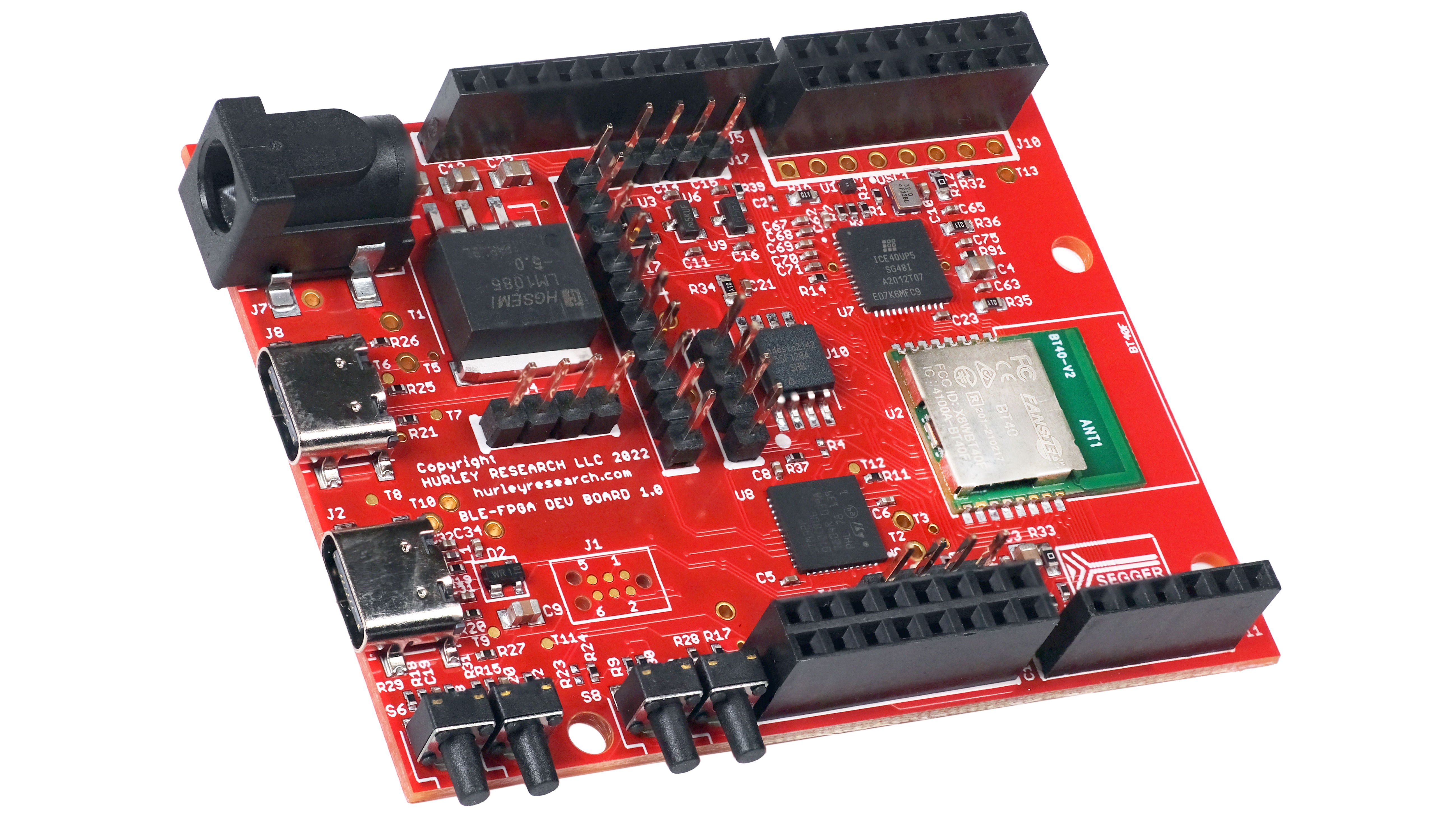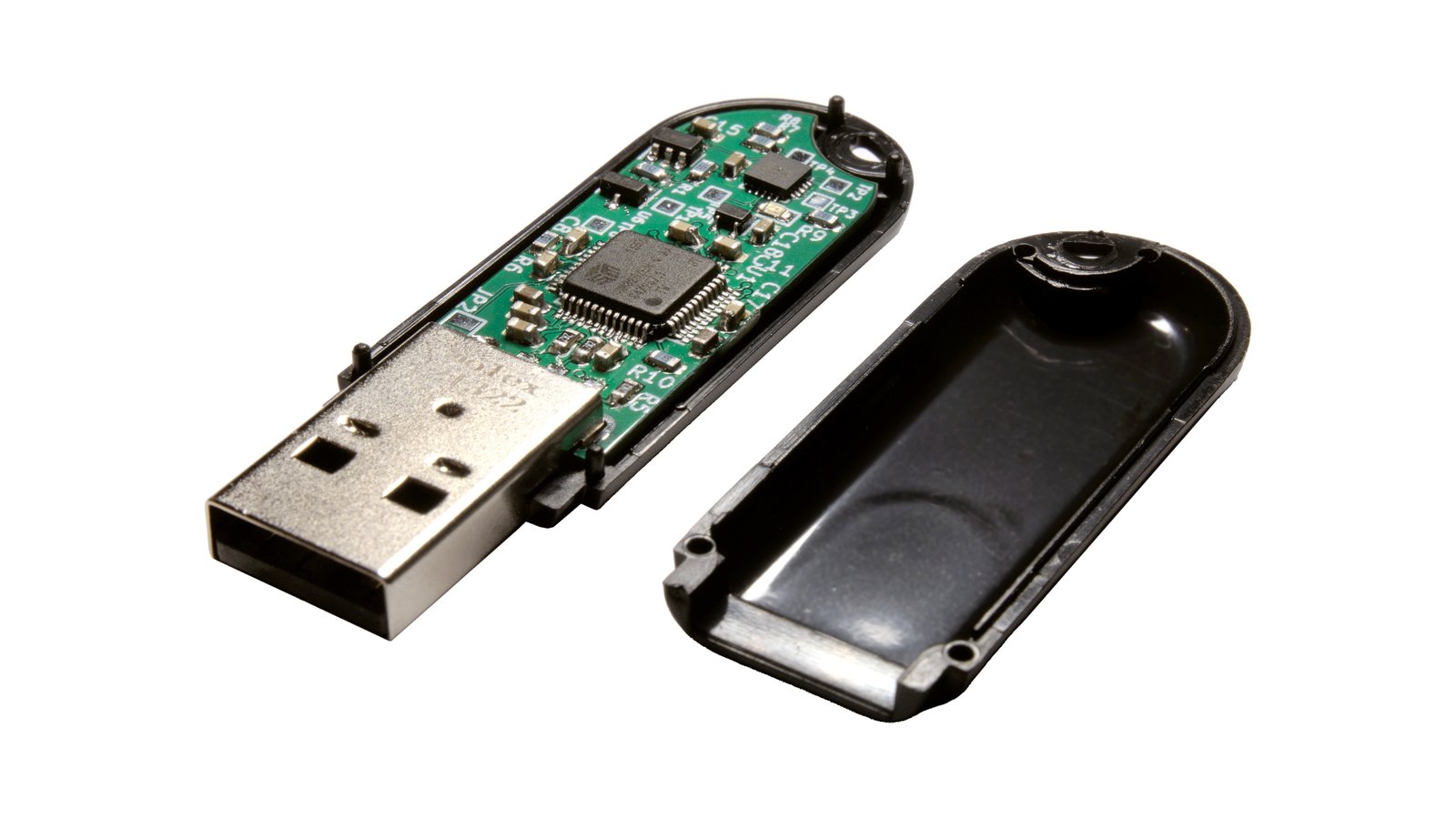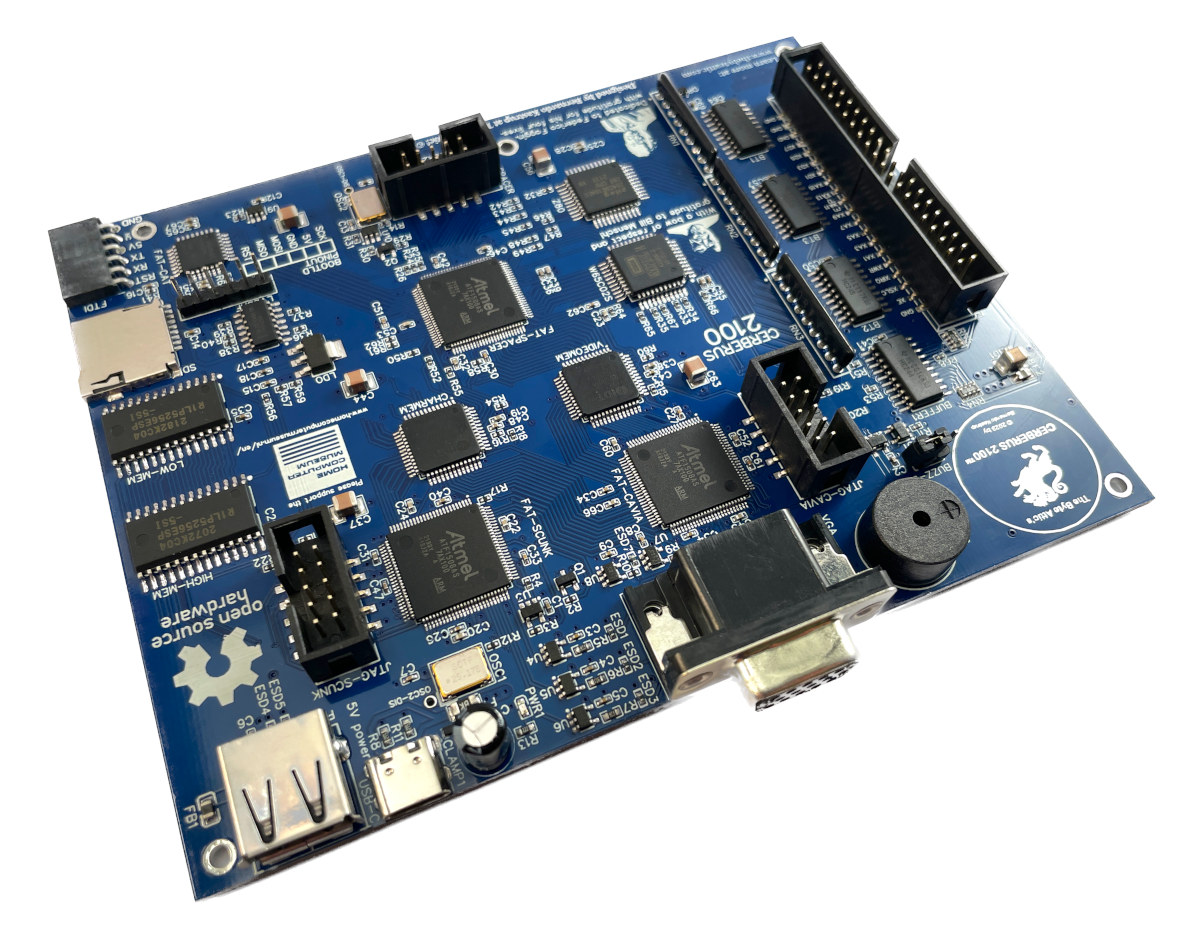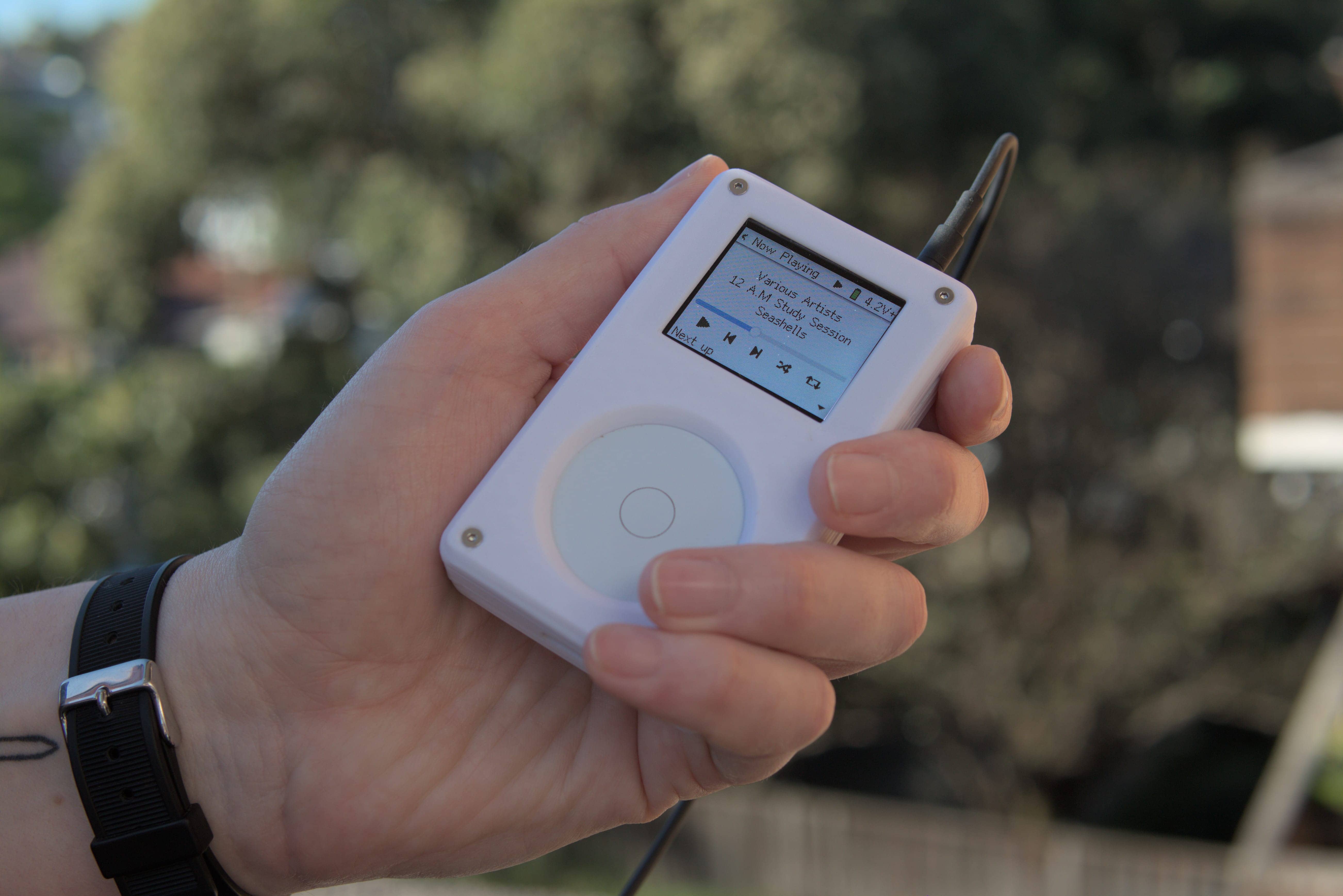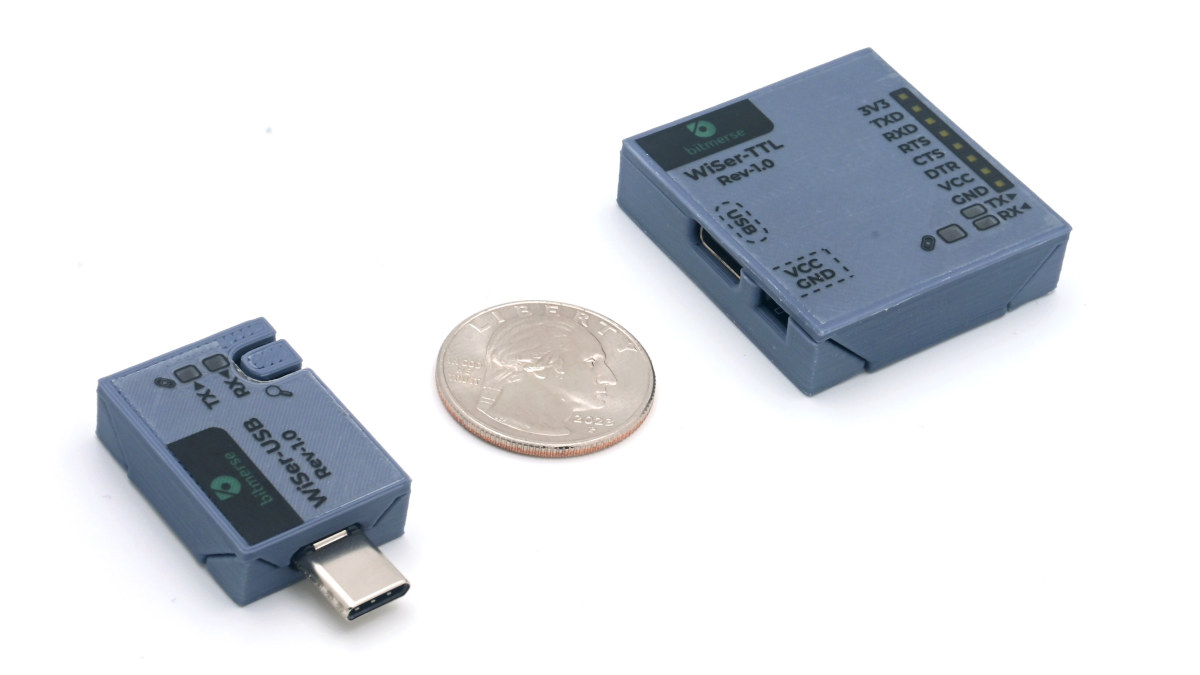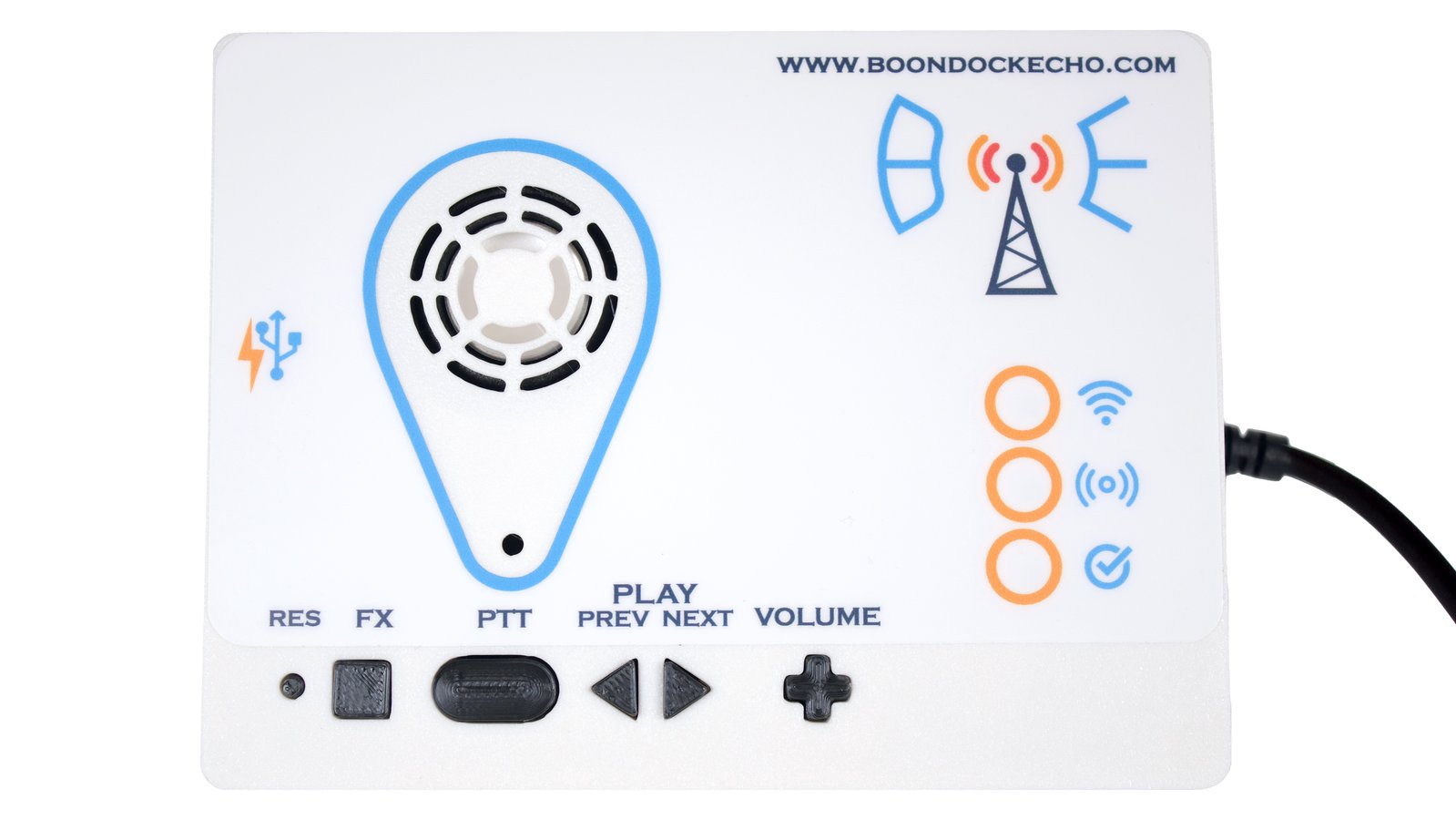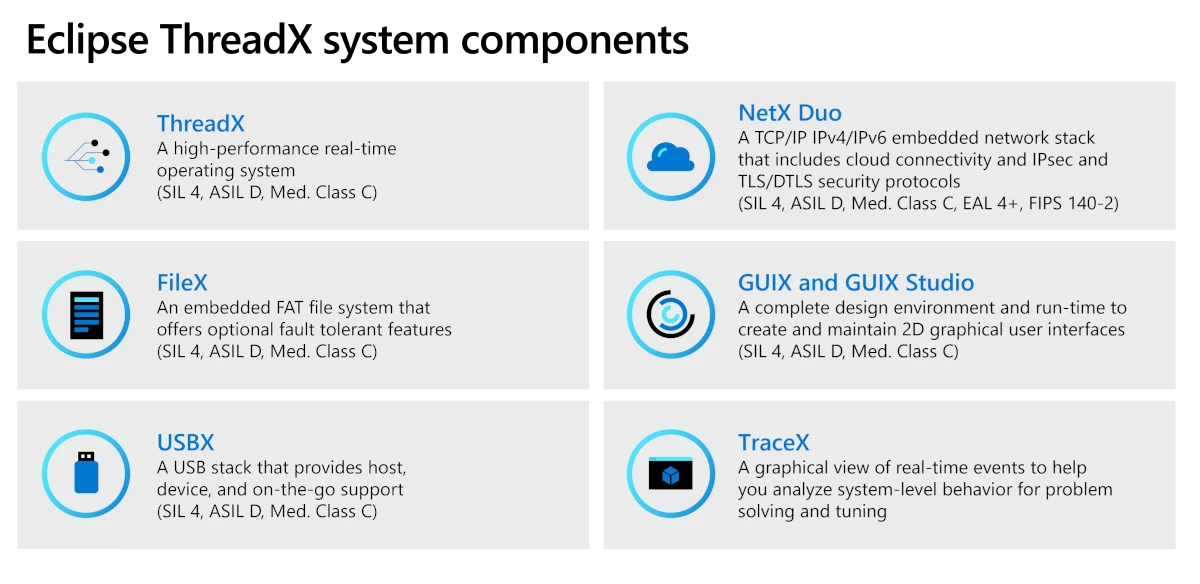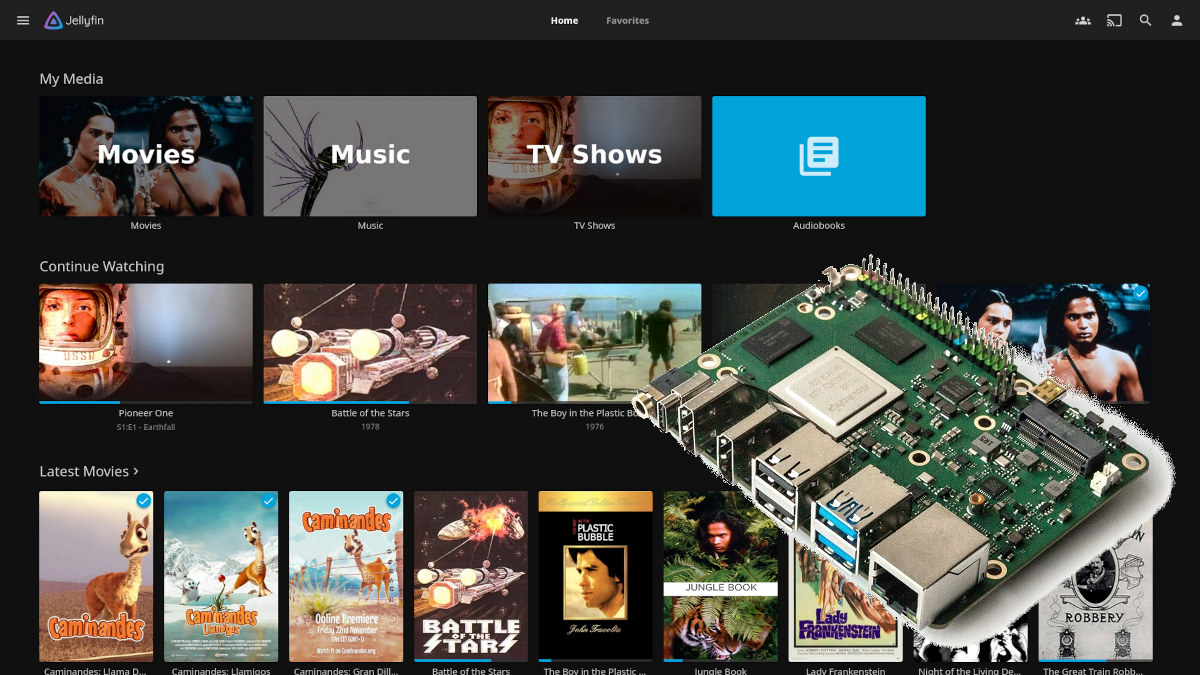The NRFICE FPGA is a Bluetooth FPGA board designed for edge computing and IoT applications. It is built upon a combination of the dual-core nRF5340 Bluetooth SoC and the Lattice ICE40UP5K FPGA. The ICE40 UltraPlus is a low-power, high-performance FPGA for edge computing and artificial intelligence projects and the nRF5340 is a Bluetooth 5.3 SoC that supports Bluetooth Low Energy (BLE), Bluetooth Mesh, Thread, NFC, and Zigbee. Through the Nordic nRF5340, NRFICE can load a project directly into the iCE40 FPGA, bypassing the usual extensive toolchain setup. This enables a new class of FPGA development, where bitstreams can be hosted in the cloud, selected by a user on their phone, and loaded wirelessly to the board. It features a built-in J-Link OB for easy debugging and programming without the need for emulator dongles and is similar to the previously covered Segger emPower evaluation board in this regard. This board supports […]
Ovrdrive USB is an open-source, privacy-oriented USB flash drive that can self-destruct (Crowdfunding)
We have previously covered the Tillitis Tkey, an open-source security key in a USB-C case but the Ovrdrive USB stick is not a security key. It is a simple, plain USB flash drive with a special security feature. It will appear completely blank unless you plug this drive in three times in quick succession. The Ovrdrive flash drive is aimed at journalists in repressive areas and security researchers but may be useful to other security and open-source hardware enthusiasts. As for how it works, the Ovrdrive has two identical circuits connected to the ATtiny24A microcontroller that controls the rapid plug-in functionality. When the flash is plugged in, the microcontroller powers on, and the CHG1 node goes high, charging C3 through D2. The pin will remain high for a while and then slowly discharge via R1 and body resistance. C3 and the identical C14 will remain high through power cycling/a quick […]
CERBERUS 2100 is a BASIC-programmable educational board with Z80 and 6502 8-bit CPUs
Olimex has just announced the launch of the CERBERUS 2100 open-source hardware, educational, multi-processor 8-bit computer with both Z80 and 6502 CPUs, as well as a Microchip AVR processor serving as an I/O controller. The CERBERUS 2100 features several CPLD and is fully programmable from the lowest level (individual gates and flip-flops) up to BASIC interpreters running on the Z80 and 6502 CPUs. Olimex did not design this themselves as the hardware design is from Bernardo Kastrup (aka TheByteAttic), while BASIC interpreters were written by Alexander Sharikhin (6502) and Dean Belfield (Z80). CERBERUS 2100 specifications: Processors Zilog Z80 8-bit microprocessor at 4 or 8 MHz (user selectable) Western Design Center W65C02S 8-bit microprocessor at 4 or 8 MHz (user selectable) “FAT-CAT” (Custom ATmega328pb) Microchip 8-bit AVR ATMega328PB microcontroller at 16 MHz CPLDs (ATF1508AS-7AX100) FAT-SCUNK (Scan CoUNter and clocK) and FAT-CAVIA (ChAracter Video Adapter) for video circuit connected to a 25.175 […]
Tangara is a portable, open-source music player based on an ESP32 MCU (Crowdfunding)
Tangara is a portable music player that is out to make MP3 players cool again. With an iPod-inspired design and an ESP32 module at its core, Tangara presents an open-source and nostalgic way to listen to your favorite music and podcasts. The ESP32-WROVER-E at the core of the music player is the main microcontroller but it also features a co-processor, a Microchip SAMD21, which is responsible for USB communication and power management. We have covered the ESP32-WROVER-KIT, a development kit for the ESP32-WROVER and ESP-WROOM-32 line of modules with a JTAG interface and an LCD. The Tangara music player can output audio through a 3.5mm headphone jack or Bluetooth, although Bluetooth is currently limited to the default SBC codec. Tangara is the brainchild of Australian tech company Cool Tech Zone and is aimed at the portable media player community at large. This is reflected in many of the design choices […]
Wiser wireless-to-serial kit eases the debugging and programming of embedded devices (Crowdfunding)
WiSer is a wireless-to-serial communication kit comprised of a USB dongle (WiSer-USB) and a USB TTL debug board (WiSer-TTL) – both built around an ESP32-S2 microcontroller – that allows users to establish a P2P wireless connection between a host computer and a development board or sensor. It works like a typical USB to TTL debug board except it operates over WiFi, and it’s especially useful to debug code, update firmware, log data, or transfer files without a USB cable or even a Wi-Fi router since the connection to peer-to-peer. It looks especially useful when the host and DUT are too far apart, and my review samples are often on another table around 1.5m from the nearest USB port of my laptop, so I could see some use for it myself… WiSer specifications: Wireless SoC – ESP32-S2 Wi-Fi (and Bluetooth) microcontroller USB – 1x USB Type-C port providing a virtual serial […]
The Boondock Echo is an internet-connected ham radio powered by the ESP32-A1S devkit (Crowdfunding)
The Boondock Echo is an open-source, internet-backed recording and playback device for two-way devices. It can denoise, transcribe, translate, and send emails on hearing keywords/call signs. It is a low-cost solution for timeshift radio communication that enables users to monitor frequencies and record audio from a connected radio. Captured messages are uploaded to a server and transcribed using OpenAI. On the cloud server, the audio messages also pass through some DSP (digital speech processing) algorithms for noise reduction and volume normalization to enhance their clarity and usability. The Boondock Echo is aimed at amateur radio operators and first responders in remote areas and during emergencies, situations where traditional two-way radios tend to be unclear and unreliable. Multiple devices can be linked together to form a ‘dockpack’ and monitor/record multiple frequencies at once. Boondock Echo specifications: Mainboard – ESP32-A1S (ESP32 Audio Kit) running at up to 240MHz Expansion Board – Boondock […]
Microsoft open-sources Eclipse ThreadX real-time operating system
Microsoft will soon open-source Eclipse ThreadX real-time operating system that has been deployed on more than 12 billion embedded devices worldwide since its first release in 1997 and, for instance, it is found in Broadcom processors powering Raspberry Pi SBCs. ThreadX was a commercial, safety-certified real-time operating system developed Express Logic which was acquired by Microsoft in 2019 and renamed to Azure RTOS. Last year, Microsoft decided to start the process to fully open-source Azure RTOS under an MIT license and managed by the Eclipse Foundation. Hence its new name: “Eclipse ThreadX“. The Eclipse ThreadX project is not simply comprised of the RTOS itself, but also includes other components: ThreadX – Real-time operating system (RTOS) designed for deeply embedded applications NetX Duo – Industrial-grade TCP/IP network stack designed for deeply embedded real-time and IoT applications FileX – FAT-compatible file system integrated with ThreadX kernel GUIX – Embedded graphical user interface […]
JellyFin adds support for Rockchip RK3588 MPP hardware acceleration
Jellyfin open-source media server has recently added support for Rockchip RK3588 MPP hardware acceleration, which means the software supports video hardware decoding and encoding, hardware scalers, and other features. The GitHub request lists the following changes: Add full HWA transcoding pipeline for Rockchip RKMPP HW decoder (MPEG1, MPEG2, MPEG4, H264, HEVC, VP8, VP9, AV1) HW encoder (H264, HEVC) up to 1080p @ 480fps / 4k @ 120fps on RK3588 HW scaler, format conversion, and subtitle burn-in HW HDR-to-SDR tone-mapping (requires OpenCL, RK3588 only) The OpenCL runtime can be downloaded and installed from libmali-valhall-g610-g13p0-x11-wayland-gbm_1.9-1_arm64.deb Support lossless AFBC (Arm frame buffer compression) to save memory bandwidth and improve FPS Support async RGA filter and MPP encoder If indeed decoding and encoding can be performed simultaneously, that would mean video transcoding can be offloaded to the Rockchip RK3588’s VPU. The changes has been tested with Linux 5.10 and Linux 6.1, but do not […]


